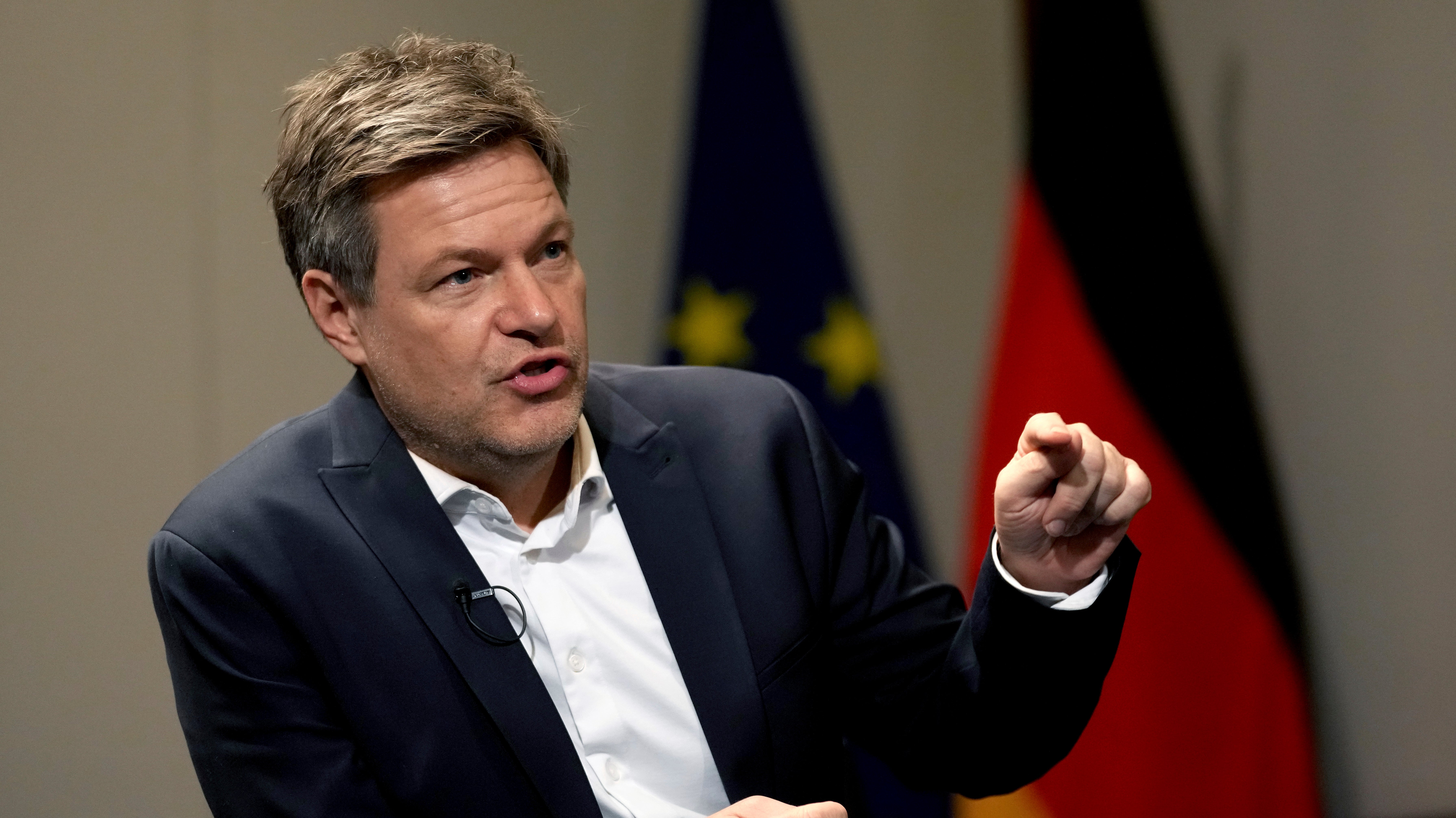Germany turns to renewables after Russian invasion of Ukraine
Germany halted the Nord Stream 2 pipeline when Russia waged war on Ukraine
Germany aims to speed up wind and solar energy projects in a bid to reduce its reliance on Russian gas following the Ukraine invasion.
The country, which uses gas to heat half of its households, suspended the Nord Stream 2 gas pipeline when Russia invaded Ukraine.
Germany obtains half its gas from Russia and had argued that Nord Stream 2 was primarily a commercial project to diversify energy supplies for Europe.
But it faced opposition within the European Union and from the United States on the grounds that it would increase Europe’s energy dependence on Russia.
Germany is already set to exit nuclear power this year and coal-fired energy by 2030 to help it reach climate change targets.
Economy Minister Robert Habeck, a leading member of the Greens party, noted that Germany needed to take a range of steps, including diversifying its sources of imports.
"We need to admit that in the past we have been too reliant on Russian imports," Habeck told journalists.
"In the medium and long term, we are going to significantly reduce the consumption of fossil fuels."

Habeck’s ministry plans to speed up the passage of the Renewable Energy Sources Act (EEG) through parliament so that it can come into force by July 1.
The act would see Germany suspend cuts to subsidies for new solar panels on roofs this year and increase solar tenders – a mechanism for allocating financial support to renewable energy projects – to 20 gigawatts by 2028 from about five gigawatts now.
Germany would also boost tender volumes for onshore wind energy to 10 gigawatts annually by 2027 from about two gigawatts now and keep them at that level through to 2035.
These steps would help renewable sources account for 80% of Germany’s electricity needs by 2030 and all of them by 2035, compared to a previous target to abandon fossil fuels "well before 2040", the economy ministry said.
However, Habeck rejected calls for Germany to reconsider exiting coal and nuclear power in light of Russia’s invasion.
"Coal and nuclear are not alternatives for Germany," he said, noting that half of Germany’s coal was also imported from Russia and adding that it would not be possible to keep nuclear plants online as they do not have approval to keep running.
Dr Ella Gilbert, a climate scientist at the University of Reading, told the Independent renewable energy is a “no-brainer for any government with any form of foresight” in the wake of the closure of Nord Stream 2.
“I hope there’s this diversification of energy supply and we invest in renewable technologies because if we don’t we’re moving backwards,” she added.
Join our commenting forum
Join thought-provoking conversations, follow other Independent readers and see their replies
Comments
Bookmark popover
Removed from bookmarks